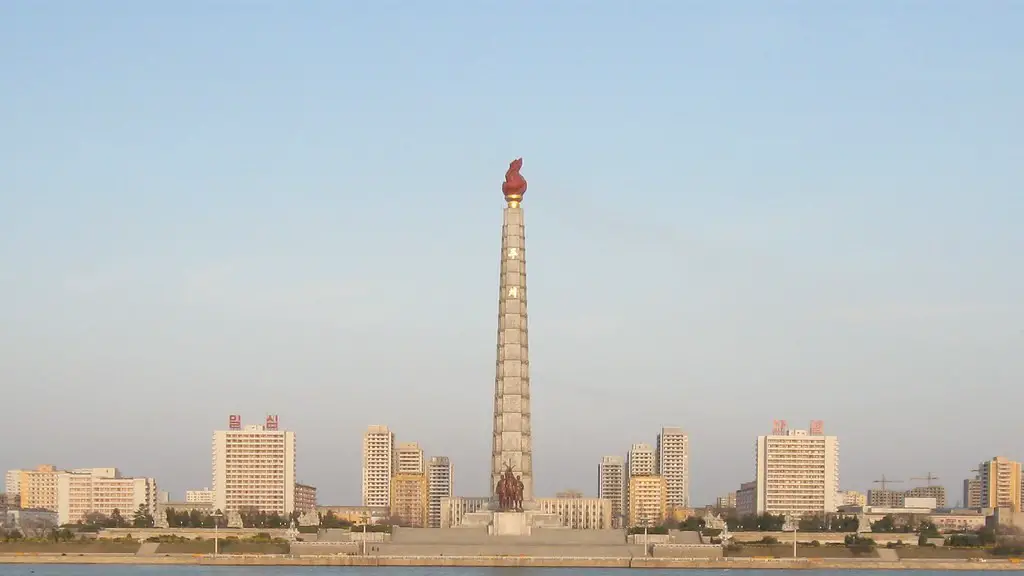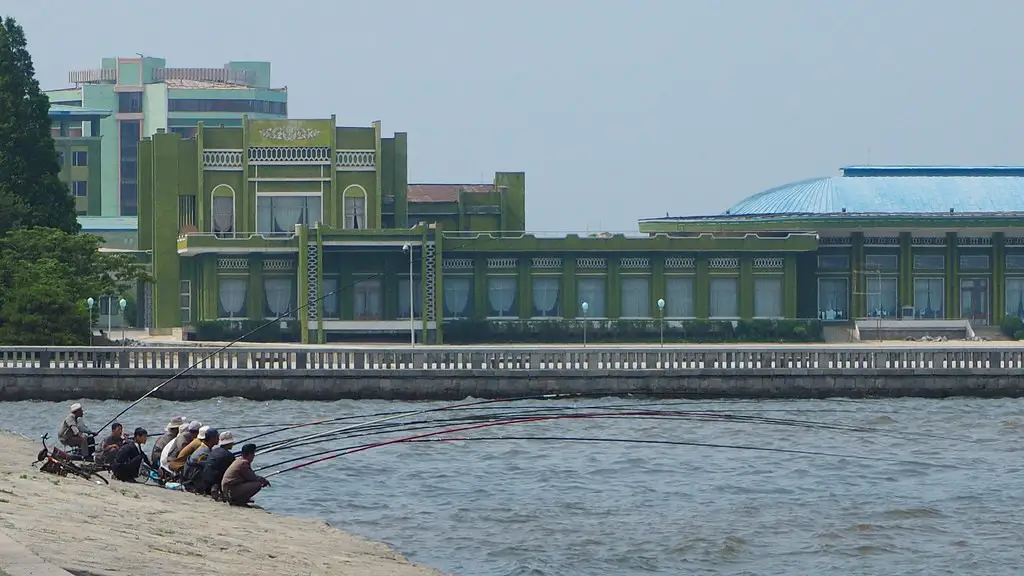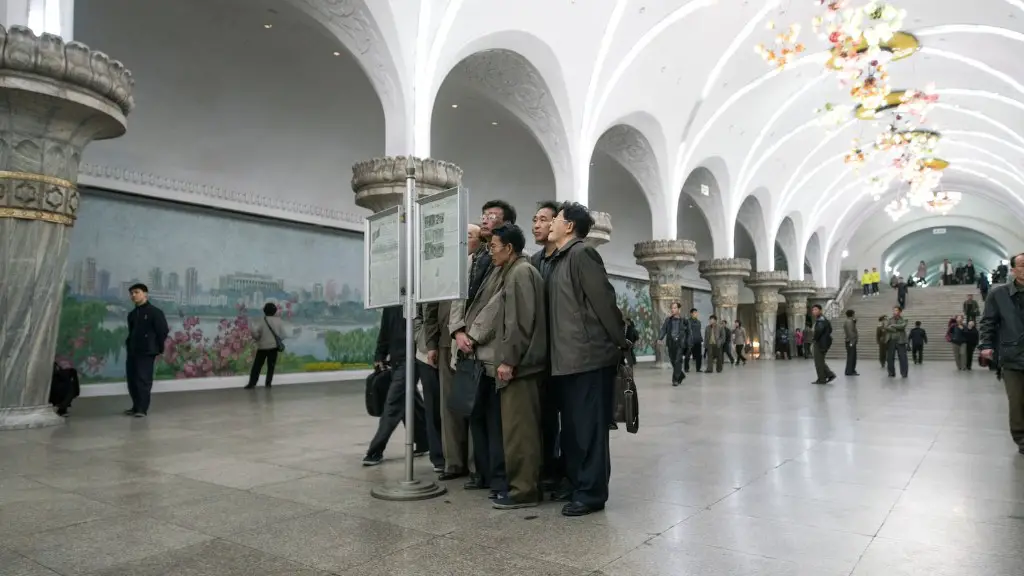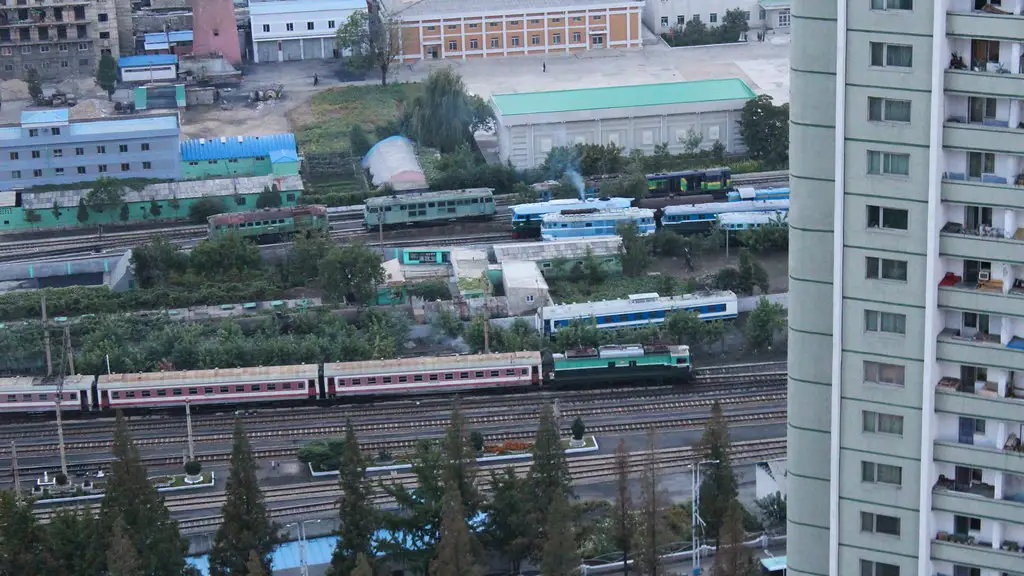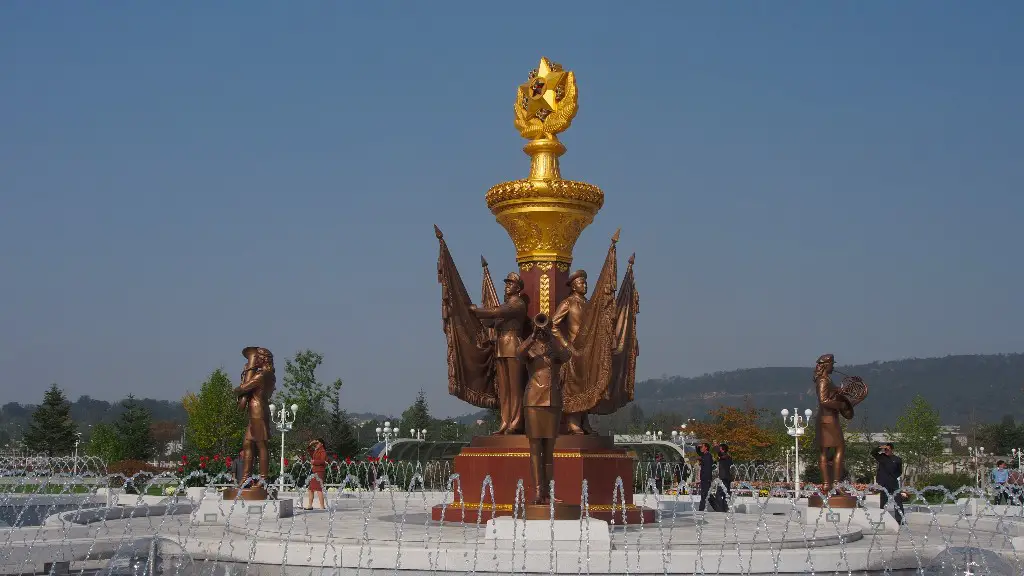Communist Origins
North Korea, officially the Democratic People’s Republic of Korea (DPRK), first became a unified state under the Soviet-backed Workers’ Party of Korea in 1948 following the end of World War II. In the span of just four years, the newly formed state saw significant changes in its political system, administration and geography. After a brief period of collaboration with the Soviet Union and the People’s Republic of China, the Korean Workers’ Party declared the formation of the DPRK in 1949.
Ideologically, North Korea was initially a Stalinist state, a one-party communist state which welcomed the Three Revolutions (ideological, cultural, and technical) of the Soviet Union. This became the ideological cornerstone of the DPRK for many years to come. The ruling Workers’ Party of Korea was granted an official monopoly on power in 1954 after the Korean War.
North Korea’s economy was heavily influenced by its Communist ideology in the 1950s, with much of its growth based on Soviet-style central planning. The nation’s heavy reliance on Soviet aid and protection led to increased bureaucratic expansion and rampant corruption. This trend continued well into the 1960s, with North Korea relying heavily on imports from the Soviet Union and China.
Juche
In 1965, North Korea officially adopted “Juche” (self-reliance) as its central ideological concept. The concept of Juche was championed by former North Korean leader Kim Il Sung and became a cornerstone of his rule. Juche held that Korea was independent from the other communist countries and that its economy should be based on domestic resources, rather than those from foreign nations.
Following the death of Kim Il Sung in 1994, his son Kim Jong-Il took over as leader of North Korea. Kim Jong-Il further developed the concept of Juche and declared it North Korea’s official state ideology. Under Kim Jong-Il’s rule, North Korea officially abandoned Marxism-Leninism in favor of Juche-oriented socialism, leading to significant changes in North Korean policy.
Under the Juche system, North Korea adopted a hardline stance against the outside world and embraced a nationalist, militaristic form of socialism. This led to a period of isolationism and provoked significant tensions with the rest of the world. North Korea also sought to improve its economy, but its attempts were largely unsuccessful and the nation’s economic situation continued to worsen.
Developments in the 21st Century
The start of the 21st century brought about further changes in North Korea’s foreign policy, as the nation opened itself up to diplomacy and the outside world in order to secure economic aid. North Korea also re-approached its original Stalinist roots during this period, though the nation still retained its unique Juche-oriented aspects.
Under the rule of Kim Jong-Un, North Korea has shifted towards a more moderate stance, opening Korean-american joint ventures and resuming six-party talks with South Korea, the United States, China, Russia and Japan. Internally, North Korea has continued to remain under the control of an authoritarian government and its economy has yet to stabilize. However, its citizens have enjoyed growing access to the outside world, largely thanks to advances in technology such as the internet and mobile phones.
As North Korea continues to negotiate and collaborate with other nations, it is likely that the nation’s foreign policy and economic situation will continue to evolve and develop. Despite the nation’s long history of authoritarianism, it appears that the DPRK is heading towards a different future.
Relations with South Korea
As two divided states, North and South Korea have often been at odds with one another throughout the years. The two divided states were in a state of war for the first two decades of the DPRK’s existence, with the two sides struggling for control over the peninsula. In the late 1980s, however, the two sides began to gradually move towards a more collaborative stance.
In 2000, North and South Korea held the first ever inter-Korean summit in the border city of Kaesong. This summit marked the opening of diplomatic ties between the two states, with both sides agreeing to seek mutual understanding and cooperation. Another significant milestone was the Declaration of the Development of Inter-Korean Relations of July 4, 2007, which declared that the two sides would seek reconciliation and the mutual betterment of the Korean Peninsula.
In recent years, North and South Korea have made significant progress in improving their relations. Both states have signed a comprehensive peace treaty and reopened bilateral exchanges. This has allowed for better economic collaboration, with numerous business partnerships and joint investments being established in both states. As of 2021, relations between North and South Korea remain relatively positive, and there is hope that the two states will continue to move towards greater cooperation.
Human Rights Issues
North Korea has a long history of human rights violations, with numerous reports of political prisoners being subjected to torture, inhumane living conditions and forced labor. In addition, North Korea has been accused of widespread censorship of its citizens, with the government suppressing information about the outside world and strictly monitoring its citizens’ access to the internet.
In recent years, there have been some efforts to address the human rights issues in North Korea, with numerous international human rights organizations putting pressure on the DPRK to address these issues. In 2014, the United Nations Human Rights Council established the Commission of Inquiry on Human Rights in the Democratic People’s Republic of Korea, to investigate allegations of violations of international law in North Korea.
However, despite these efforts, human rights violations remain a major problem in North Korea and much work remains to be done in order for the nation to improve the situation of its citizens. In the meantime, concerned organizations and citizens can help put pressure on the North Korean government to address these issues, in order to ensure that the North Korean citizens can enjoy the same rights and freedoms as their counterparts in the rest of the world.
North Korea’s Nuclear Weapons Program
North Korea’s nuclear weapons program has been a major cause of concern for the international community since the late 1990s. The nation began researching nuclear technology in the early 1980s and conducted its first nuclear test in 2006. In the following years, North Korea continued to develop its nuclear weapons and began testing advanced ballistic missiles.
The United Nations Security Council has imposed multiple rounds of economic and diplomatic sanctions against North Korea in an effort to curb its nuclear weapons program. Despite these efforts, North Korea has continued to increase its nuclear capabilities and continues to pose a threat to global security.
In recent years, there have been some efforts to negotiate a nuclear-free Korean peninsula, with the United States and North Korea engaging in denuclearization talks. These talks have been stalled in recent years, however, with no tangible progress being made. It remains to be seen if the two sides can reach an agreement that can lead to the denuclearization of the Korean Peninsula.
North Korea’s International Relations
In recent years, North Korea has sought to build stronger ties with the international community. The nation has opened itself up to several forms of foreign aid and investment, including tourism and business collaborations. North Korean officials have also engaged in diplomatic exchanges with other nations in an effort to promote international cooperation.
Despite this increased openness, however, North Korea still poses a significant threat to international security. The nation’s aggressive foreign policy and its pursuit of nuclear weapons continue to provoke tensions with the rest of the world. As a result, the DPRK remains under multiple rounds of economic sanctions, and its relationship with the United States and the international community remains strained.
It is clear that North Korea is a complex nation, with a long and often turbulent history. Despite the recent progress in its external relations, the nation still remains a source of tension and concern for the international community. Only time will tell if North Korea can shed its aggressive stance and move towards a more peaceful future.
North Korea’s Role in the Global Stage
North Korea remains an important player in the international community. In recent years, the nation has sought to improve its relations with other countries, particularly its neighbor South Korea. North Korea has also engaged in diplomatic exchanges with its historical allies China and Russia, and with the United States.
In 2020, North Korea hosted the much-anticipated fifth US-North Korean summit in Pyongyang. The summit was seen as a major step towards the denuclearization of the Korean Peninsula and the potential normalization of ties between the two countries. Despite the positive talks, the summit broke down due to disagreements between the two sides and the situation remains unresolved.
Despite its difficulties with other nations, North Korea plays an important role internationally. The nation is a permanent member of the United Nations, and its unique stance in international affairs often has a major impact on global politics. In the future, it is likely that North Korea will continue to remain an important actor in international affairs and a source of considerable geopolitical tension.
